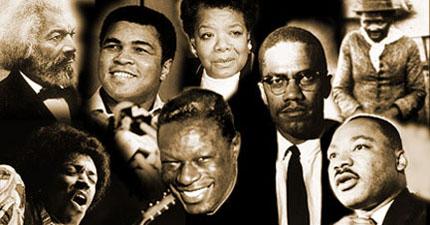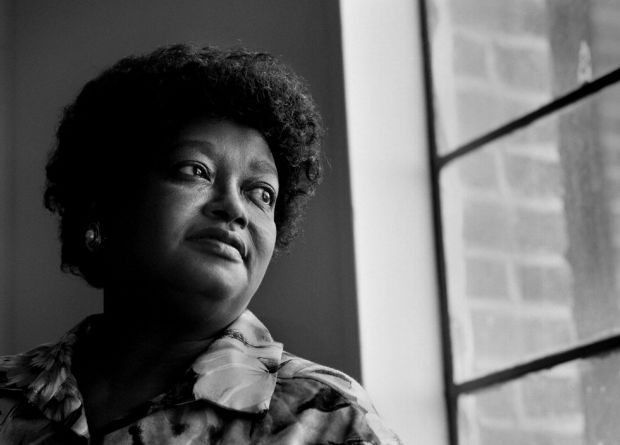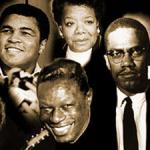It’s that time of year again. Corporations and schools are remembering that Black people exist and have a history. I’m ready for another batch of ads full of Black people looking solemn, “remembering our heritage” while a choir hums in the background. I’m prepared for the “why the shortest month?” and the “why doesn’t (ethnic group) have a month?” complaints.
I’m prepared for the same few stories that get taught ad nauseam in schools. What I’m less prepared for are to grapple with the stories that usually get left out of Black History Month.
Looking at curriculum material and lesson plans for elementary grades has made me realize that I’ve been relatively fortunate when it comes to learning about Black history. While growing up, I was blessed with Black teachers and a grandmother who hassled encouraged me to learn more about our history.
Roots (the original miniseries) and X were required viewing. My mother wouldn’t allow me to speak AAVE (African-American Vernacular English), but she couldn’t keep my grandmother from speaking it. I grew up with stories of my family’s transition from slavery to freedom.
This tradition has survived into the new generation. My son’s bedtime stories include readings from “The People Could Fly,” with a passable attempt at Gullah. Our home lessons have used episodes of “Destination Freedom.” And as soon as I could fight my way to the front of the virtual line, I grabbed tickets for the National Museum of African American History and Culture.
But, the books about #BlackExcellence and learning all three verses of “Lift Every Voice and Sing” gloss over parts of Black history that have always felt like a phantom limb.
The life and legacy of Dr. Martin Luther King, Jr. will be frequently referred to in the coming weeks, mostly in the form of quoting from one or two speeches and discussing the Montgomery Bus Boycott. These references will have been carefully scrubbed of the radical nature of his work and his complexity as a man. He deserves much more, and his greatness must never be lost to history.
But, Bayard Rustin and Marsha Johnson receive far fewer accolades. Our greatness is not owed to being cisgender or heterosexual, and we gain nothing by pretending that LGBT Black folk have not always existed. We teach history in part for the benefit of future generations. Young Black people today are not learning about the gender and sexual diversity of our people, let alone the fact that such diversity long precedes our enslavement.
It leaves them out of a story that ought to be their own.
Even before my son’s official diagnosis, I suspected that he might not see himself in what is supposed to be his own history. Even with Harriet Tubman, a Black History Month staple, discussions on the intersection of race and disability are thin when present at all. We have been stereotyped and commodified for our physical skills.
What happened to the children who could not walk, let alone move fast enough to pick tobacco? What happened to the children who could not hear orders or see cotton bolls? How did our people’s views of ability change as we lost traditions and languages? I searched the halls of the National Museum of African American History and Culture looking for some photo caption or display that would highlight the twin struggles of disabled Black people, but I was disappointed.
The history of disabled people receives appallingly short shrift in general, and Black history narratives are all but silent on disabled Black people.
For all the struggles that are ignored at the intersections of race, gender, sexual orientation and ability, what worries me most is the very idea of struggle seems to have been forgotten. Dr. King spoke of having been to the mountaintop, a metaphor for a hard, uncertain task during which turning back almost always seems like a better idea. We’ve lost the perspective of history as this hard, uncertain road.
 We imagine that the colonists could never have lost the revolution, that our freedom and citizenship were somehow inevitable, and that all that was needed for progress was time, or to find the one person who would show us the escalator up the mountain, sweeping us past all logistical difficulties, moral debates and failed attempts. This view only serves to encourage people to turn back instead of pushing on when the climb is tougher than anticipated.
We imagine that the colonists could never have lost the revolution, that our freedom and citizenship were somehow inevitable, and that all that was needed for progress was time, or to find the one person who would show us the escalator up the mountain, sweeping us past all logistical difficulties, moral debates and failed attempts. This view only serves to encourage people to turn back instead of pushing on when the climb is tougher than anticipated.
We feel more alone in our struggle than we ought to be, when our ancestors went around in circles, bickered, tore up the maps, drew new ones, and everything else we fear will end up with us lost forever. But we’re still climbing.
Just as history is a difficult path when you’re living it, remaining in dialogue with history is also a hard climb. The slim volumes on prominent African-Americans that my grandmother collected reveal only one side of a complex history. As I give the lessons on segregation on public transport, I will have to cover why Rosa Parks was chosen to be at the forefront of media attention, and not Claudette Colvin or John Hope Franklin.
The question of whose stories get told will have to be explored in depth, and I’ll need the strength to question my values. Deciding just where to put Peter Sewally, aka Mary Jones, will challenge everything I’ve learned about history. There’s been so much emphasis on our extraordinary accomplishments that will have to be set aside, especially when discussing disabled Black people.
I will need to decide just how much detail I can tolerate, let alone share, of a history written in blood. I will make mistakes. Black history is a history of missing stories, of pieces that fit around enormous gaps. Recognizing the pieces and the gaps helps us recognize ourselves.
If I can help my family and my people connect with our history a little better than before, I will count it as both duty and honor. I owe this much to those who came before, and to those who will follow. “Keep us forever on the path, we pray.”
Nakia Jackson is a mom, musician and writer. From her first (terrible) story at age six to the ad copy and background music she sells to keep the family in yarn and Cheerios, creating has been her life’s breath. When not creating, Nakia enjoys family excursions designed to show the world that normal is merely a setting on the washing machine. Her column, Another Kind of Voice, is published in the last week of every month.















